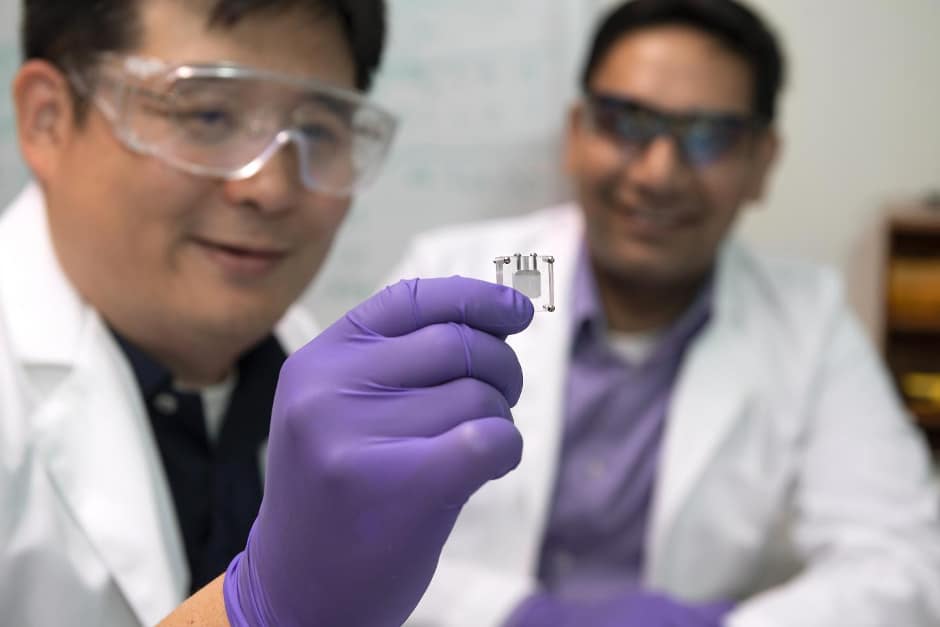Sugar-powered biofuel cell sensor detects and prevents disease
Researchers have developed an implantable sugar-powered biofuel cell sensor to monitor biological signals and detect diseases.

Subhanshu Gupta, an assistant professor in Washington State University's School of Electrical Engineering and Computer Science, led a team in the development of the sensor, which runs on a biofuel cell that harvests glucose from bodily fluids.
The research team has demonstrated a unique integration of the biofuel cell with electronics to process physiological and biochemical signals with high sensitivity. Their work has been published in IEEE Transactions of Circuits and Systems.
Professors Su Ha and Alla Kostyukova from the Gene and Linda School of Chemical Engineering and Bioengineering, led the design of the biofuel cell.
Many popular sensors for disease detection are superficial and can't be embedded, such as watches, which need to be recharged, or patches that are worn on the skin. The sensor developed by the WSU team could also remove the need to prick a finger for testing of certain diseases, such as diabetes.
Register now to continue reading
Thanks for visiting The Engineer. You’ve now reached your monthly limit of news stories. Register for free to unlock unlimited access to all of our news coverage, as well as premium content including opinion, in-depth features and special reports.
Benefits of registering
-
In-depth insights and coverage of key emerging trends
-
Unrestricted access to special reports throughout the year
-
Daily technology news delivered straight to your inbox










UK Enters ‘Golden Age of Nuclear’
The delay (nearly 8 years) in getting approval for the Rolls-Royce SMR is most worrying. Signifies a torpid and expensive system that is quite onerous...